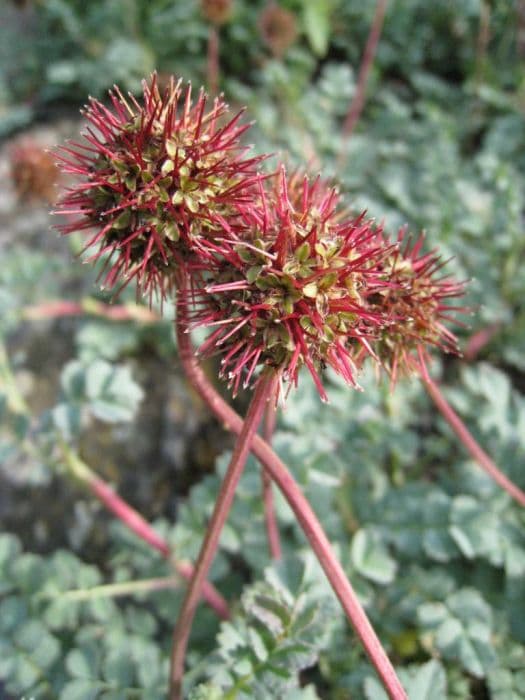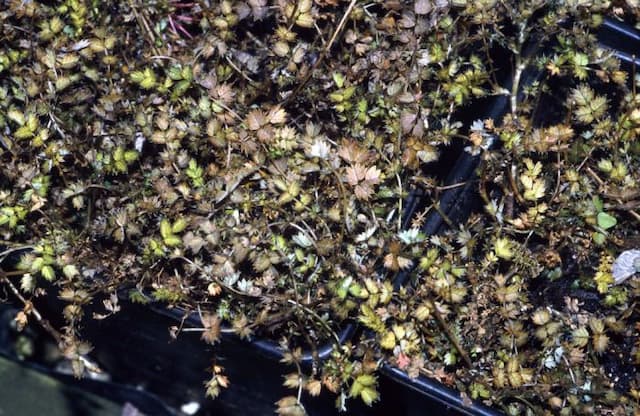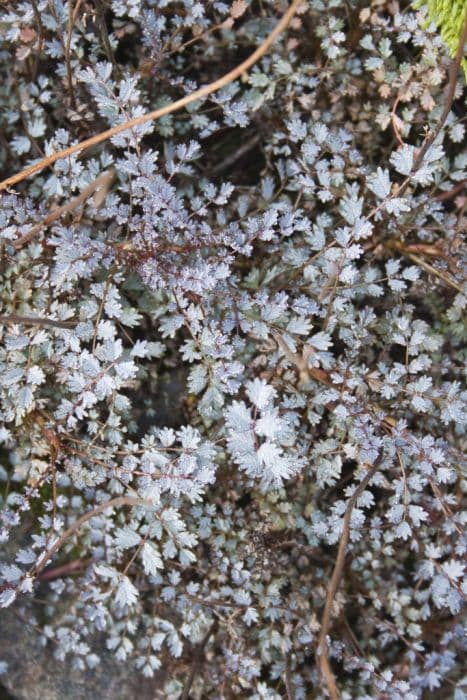Hybrid Tea Rose Rosa Uncle Walter = 'Macon' (HT)
![rose [Uncle Walter]](/_next/image?url=https%3A%2F%2Fplants-admin.emdemapps.com%2Fimages%2Fplants%2F%2Fimages%2F604b5b6016c73.png&w=3840&q=75)
ABOUT
The plant known as Rosa Uncle Walter, or commonly referred to as 'Macon' within the hybrid tea roses category, is a type of flowering shrub that boasts distinctive blooms. The flowers are typically large and well-formed, showcasing an enchanting blend of colors that may range from deep pinks to creamy hues. Each flower is comprised of multiple layers of soft petals that elegantly spiral from the center, emitting a delightful fragrance that is characteristic of many rose varieties. The foliage of the Rosa Uncle Walter is glossy, providing a vibrant backdrop of green that further accentuates the beauty of its flowers. Stems may bear thorns, as is common with rose plants, and the leaves are usually oval-shaped with pointed tips and serrated edges, arranged alternately along the stems. The plant itself embodies the gracefulness associated with rose bushes, featuring a symmetrical form that supports the striking blooms which are the focal point of this cultivar. Over the blooming season, Rosa Uncle Walter can produce several flushes of flowers, each contributing to the visual appeal of gardens and landscapes where they are featured.
About this plant
 Names
NamesFamily
Rosaceae
Synonyms
Uncle Walter Rose, Macon Rose
Common names
Rosa 'Macon'
 Toxicity
ToxicityTo humans
The Rosa 'Uncle Walter' is commonly known as a hybrid tea rose. Hybrid tea roses are not considered toxic to humans. There are no inherent poisons in the plant that would cause a human to suffer from symptoms of poisoning through ingestion. However, it is always advisable not to eat ornamental plants as they are not intended for consumption and may cause digestive discomfort or an allergic reaction in some individuals.
To pets
The Rosa 'Uncle Walter', commonly known as a hybrid tea rose, is generally considered non-toxic to pets. While roses themselves are not poisonous, they do have thorns that can cause injury if a pet attempts to chew on the stems. Moreover, eating a significant quantity of rose petals or leaves might lead to gastrointestinal upset, such as vomiting or diarrhea, simply because of the fibrous plant material, rather than due to any inherently toxic substances.
 Characteristics
CharacteristicsLife cycle
Perennials
Foliage type
Deciduous
Color of leaves
Green
Flower color
Pink
Height
4-5 feet (1.2-1.5 meters)
Spread
2-3 feet (0.6-0.9 meters)
Plant type
Shrub
Hardiness zones
5
Native area
Cultivar
Benefits
 General Benefits
General Benefits```html
- Aesthetic Appeal: The Rosa Uncle Walter exhibits lush, full blooms that add beauty and elegance to gardens and landscapes.
- Fragrance: This plant is known for its delightful fragrance that can enhance the sensory experience in any space where it's grown.
- Pollinator Attraction: The blossoms attract bees and butterflies, promoting pollination and supporting local ecosystems.
- Versatility: The plant can be used in various garden designs, including borders, hedges, and as a standalone specimen.
- Cut Flowers: The robust and attractive blooms are ideal for creating bouquets and floral arrangements.
- Long Blooming Season: Provides a long-lasting display of color throughout its blooming season.
- Drought Tolerance: Once established, it can withstand periods of low water, reducing the need for frequent irrigation.
- Cold Hardy: The plant can survive in colder climates, making it suitable for a range of geographical locations.
 Medical Properties
Medical PropertiesThis plant is not used for medical purposes.
 Air-purifying Qualities
Air-purifying QualitiesThis plant is not specifically known for air purifying qualities.
 Other Uses
Other Uses- Rose petals can be turned into a natural dye for fabrics, offering a range of colors from soft pinks to rich reds depending on the concentration.
- The rose's fragrance is used in aromatherapy to promote relaxation and reduce stress levels by using its essential oil or by inhaling its scent.
- Rose hips, the fruit of the rose plant, can be used to make herbal teas that provide a rich source of Vitamin C and antioxidants.
- Rose water, produced from the distillation of rose petals, is used in cooking and baking to add a floral flavor to dishes such as baklava and Turkish delight.
- Dried roses are incorporated into potpourri blends to not only add a pleasant fragrance to a room but also serve as a natural decorative element.
- Rose petals are used in crafting to create biodegradable confetti or decorative elements for eco-friendly events.
- The use of roses in landscaping can help prevent soil erosion due to their extensive root system.
- Rose plants can be used as a natural barrier or hedge due to their thorny stems, deterring unwanted foot traffic and animals.
- The essential oil derived from roses is used in the perfume industry to create some of the world's most famous and beloved fragrances.
- In some cultures, roses are symbolic and used in rituals and ceremonies, such as weddings, to represent love, honor, or remembrance.
Interesting Facts
 Feng Shui
Feng ShuiThe rose is not used in Feng Shui practice.
 Zodiac Sign Compitability
Zodiac Sign CompitabilityThe rose is not used in astrology practice.
 Plant Symbolism
Plant Symbolism- Love: As a type of rose, Uncle Walter represents love and romantic feelings. Roses are universally associated with deep affection, and offering a rose is a traditional way to express one's love.
- Beauty: Roses are widely appreciated for their beauty, making them a symbol of aesthetic perfection and loveliness. The Uncle Walter rose, with its particular form and color, embodies this symbolism.
- Honor: The Uncle Walter rose, like other roses, can symbolize honor. It is often used in ceremonies and tributes to show respect and reverence for an individual or achievement.
- Devotion: Roses have a long history of symbolizing deep and abiding devotion, making them a common gift between loved ones to represent their commitment to one another.
- Mystery: Certain rose colors, particularly deep reds and purples, are associated with the unknown and the subconscious, signaling mystery and intrigue.
- Balance: With its harmonious shape and petals, the rose can represent balance and harmony within life, suggesting the equilibrium between physical and spiritual.
 Water
WaterThe hybrid tea rose, commonly called the 'Macon', should be watered deeply once a week, aiming for about 1 inch of water per week to encourage deep root growth. During hot, dry periods, increase watering to every 4-5 days, supplying at least 2 gallons of water each time for mature plants. Younger plants will need water more frequently, about 2-3 times per week, with about 1 gallon each time to keep the soil evenly moist but not soggy. It is best to water in the morning to reduce evaporation and allow foliage to dry, minimizing the risk of disease. Utilize a soaker hose or drip irrigation to water the base of the plant without wetting the foliage.
 Light
LightHybrid tea roses like the 'Macon' thrive in full sunlight with at least 6 to 8 hours of direct sun daily. Position the plant in an open area where it's likely to receive morning light, which is less harsh than afternoon sun. Adequate sunlight is essential for the plant to produce energy for growth and blooming.
 Temperature
TemperatureThe 'Macon' hybrid tea rose prefers temperatures that range between 65°F and 75°F for optimal growth. While the plant can tolerate variations, it should not be subjected to temperatures below 20°F or above 90°F for prolonged periods. By ensuring the plant is shielded from extreme heat or cold, you can promote healthy growth and flowering.
 Pruning
PruningPrune the 'Macon' hybrid tea rose to ensure plant health, encourage new growth, and improve flowering. Perform the main pruning in early spring just as the buds start to swell, removing dead or damaged canes and shaping the plant. Throughout the growing season, deadhead spent blooms and remove any diseased foliage. A lighter pruning can also be done in late summer to prepare the plant for winter.
 Cleaning
CleaningAs needed
 Soil
SoilFor the best soil mix for Hybrid Tea Rose 'Uncle Walter', combine loamy, well-draining soil with organic compost. Aim for a pH level between 6.0 and 7.0, which is slightly acidic to neutral.
 Repotting
RepottingHybrid Tea Roses like 'Uncle Walter' generally do not require frequent repotting. Repotting should take place only if the rose outgrows its container or every 2 to 3 years to refresh the soil.
 Humidity & Misting
Humidity & MistingHybrid Tea Roses, including 'Uncle Walter', prefer average outdoor humidity levels. They do not require high humidity and can tolerate the humidity levels found in most temperate regions.
 Suitable locations
Suitable locationsIndoor
Provide bright light and good air circulation for indoor Hybrid Tea Roses.
Outdoor
Plant in full sun with well-draining soil and space for air flow.
Hardiness zone
Hybrid Tea Rose 'Uncle Walter' is suitable for USDA zones 5-9.
 Life cycle
Life cycleThe Rosa 'Uncle Walter' or 'Macon' (Hybrid Tea Rose) begins its cycle with seed germination, where a new plant emerges from a seed given the right conditions of moisture, temperature, and light. Following germination, the seedling grows into a young plant with a root system, stem, and leaves during the vegetative stage, where it gains strength and size. As it matures, the plant enters the flowering stage, producing the characteristic rose blooms that are often fragrant and exhibit the hybrid tea rose's large, well-formed style. After pollination by insects, birds, or the wind, the flowers develop into fruit, commonly known as rose hips, which contain seeds for the next generation. In suitable climates, the rose may enter a period of dormancy during colder months, conserving energy and resources. Throughout its life, the rose undergoes continual cycles of growth, flowering, and dormancy, typically with proper care and pruning, the rose can live and thrive for many years in a garden setting.
 Propogation
PropogationPropogation time
Spring to Summer
Propogation: The Rosa Uncle Walter, commonly known as a type of Hybrid Tea rose, is often propagated by means of softwood cuttings, which is a popular method used by gardeners. This technique is usually carried out in late spring or early summer when new growth is soft and flexible. To propagate through softwood cuttings, a gardener takes a cutting of about 4 to 6 inches (approximately 10 to 15 cm) from the tip of a healthy stem, making sure it includes several sets of leaves. The bottom leaves are removed, and the cut end is often dipped in rooting hormone before being planted in a well-draining soil mix. To maintain humidity, the cutting may be covered with a plastic bag or placed in a propagator. The soil needs to be kept moist but not soaked, and in several weeks, roots should develop, at which point the new plant can eventually be transplanted outdoors.









